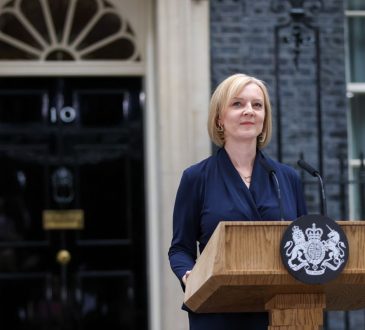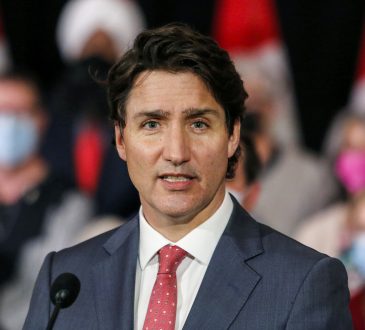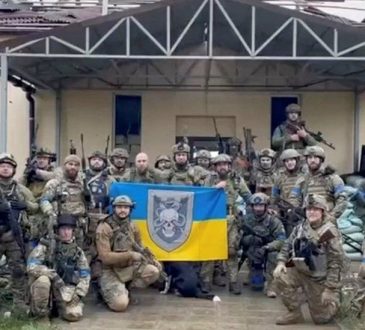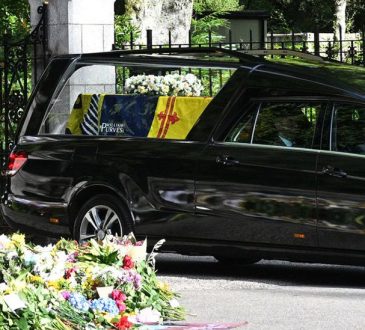
The suspect in a stabbing spree in Canada which left 10 people dead and 19 injured has died after being captured by police.
Myles Sanderson, 32, experienced “medical distress” after the arrest on a motorway in the province of Saskatchewan following a high-speed chase and died later, police say.
They gave no details. An unnamed official earlier said that Sanderson died of self-inflicted injuries.
Ten victims remain in hospital.
Three are in a critical condition.
It is not clear what prompted Sunday’s mass killings which encompassed 13 separate crime scenes. Both suspects – Myles Sanderson and his brother Damien, 31 – are dead.
Most of those killed in the rampage – and the suspects themselves – were from the James Smith Cree Nation, an indigenous community.
Police found Damien’s body on Monday and are investigating whether his brother killed him.
“This evening our province is breathing a collective sigh of relief,” Assistant Commissioner Rhonda Blackmore said on Wednesday night.
She said police had received a report earlier in the day of Myles Sanderson stealing a vehicle from outside a property. The householder was not injured during the theft.
Police gave pursuit as Sanderson fled at speeds of 150km/h (93mph).
They forced his vehicle into a ditch and officers found a knife in it as they arrested him, said the police chief.
He was taken into custody at around 15:30 local time (22:30 BST) and taken to a hospital in Saskatoon, where he was pronounced dead, she added.
News of Sanderson’s capture came soon after an alert was sent to Canadian mobile phone users warning people near the town of Wakaw to “seek immediate shelter/shelter in place” because a man armed with a knife had been seen driving a stolen white Chevrolet Avalanche in the area.
CBC News reports that Sanderson had broken into a woman’s rural property at around 14:00 local time on Wednesday.
The woman spotted Sanderson walking up to her front door, so she locked it and took refuge in a bathroom in her bedroom, her son told the Canadian broadcaster.
Sanderson kicked down the front door and went into the bedroom, telling the woman he would not hurt her and asking her to come with him, but she refused, according to her son.
The suspect took the woman’s car keys, along with her mobile phone, water and a soft drink and cigarettes, the son said. The woman called police through a landline, reports CBC.
Earlier on Wednesday, the parents of the brothers had appealed for their surviving son to turn himself in.
“I want to apologise for my son, my sons,” their mother said in an interview with CBC News.
“We don’t know the whole story, but I want to apologise to everybody that was hurt and affected by this terrible situation.”
Myles Sanderson had been facing charges of first-degree murder.
Canada’s parole board said on Tuesday that it would review why he had been released early from prison while serving a four-year sentence for several violent crimes.
In February, the board said he would “not present an undue risk” and that his release would “contribute to the protection of society” by facilitating his rehabilitation.
Saskatoon police earlier confirmed they had been searching for Myles Sanderson since May, when he stopped meeting his assigned caseworker and was classified as “unlawfully at large”.
Parole documents show he had a decades-long criminal record, including 59 criminal convictions since he was 18 for assault, threats and robbery.
According to court papers, Sanderson had stabbed two of the victims killed in Sunday’s rampage – his in-laws, Earl Burns and Joyce Burns – seven years earlier.
“I want to know the reasons behind the [parole] decision,” Public Safety Minister Marco Mendicino told reporters. “I’m extremely concerned by what occurred here.”
At an emotional news conference on Wednesday, relatives of the victims spoke of their “horror”.
Mark Arcand, chief of the Saskatoon Tribal Council, said his sister, Bonnie Goodvoice-Burns, died protecting her three children.
“One of the young boys was hiding behind a highchair watching the whole thing happen,” he said.
Additional reporting by Max Matza
BBC




